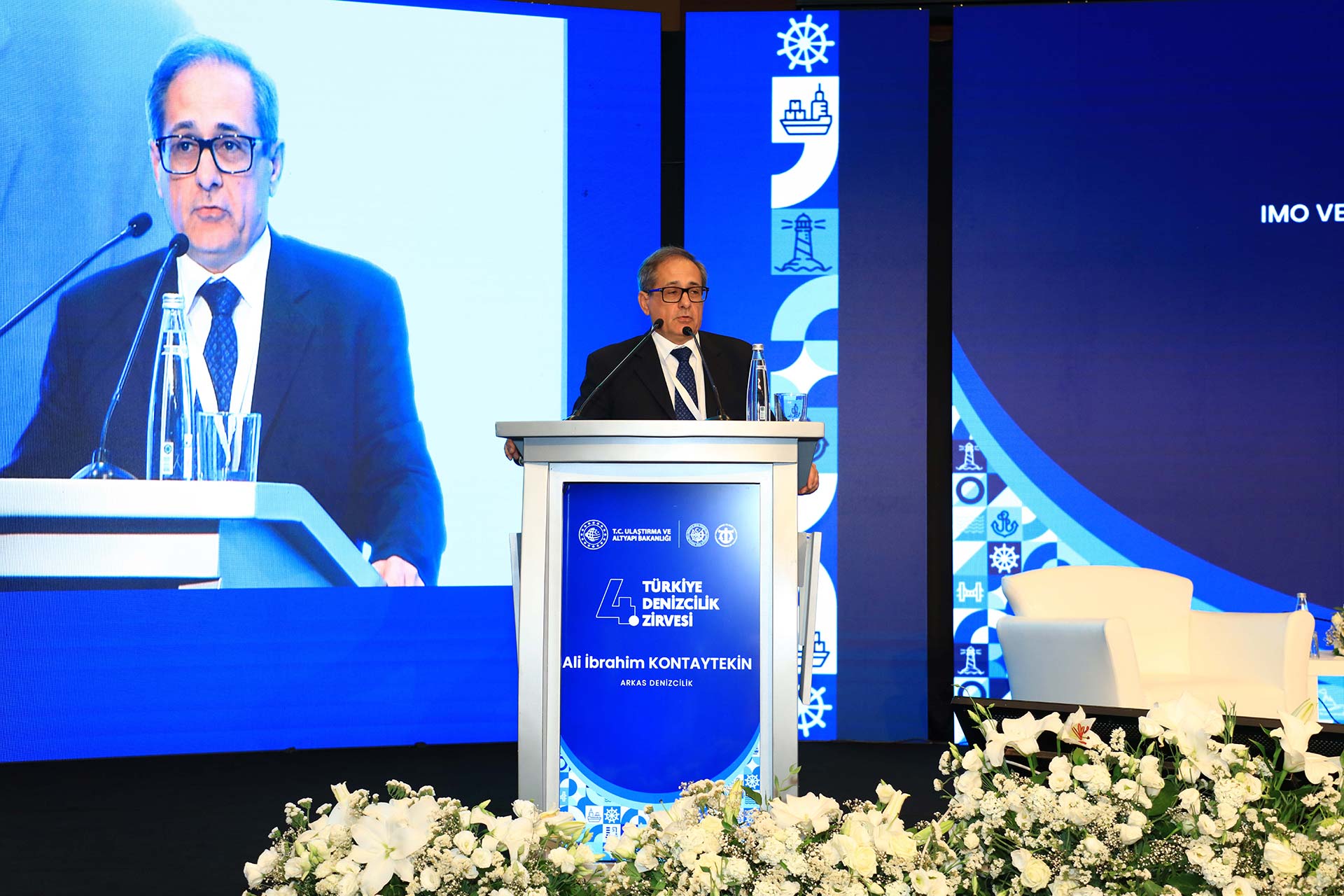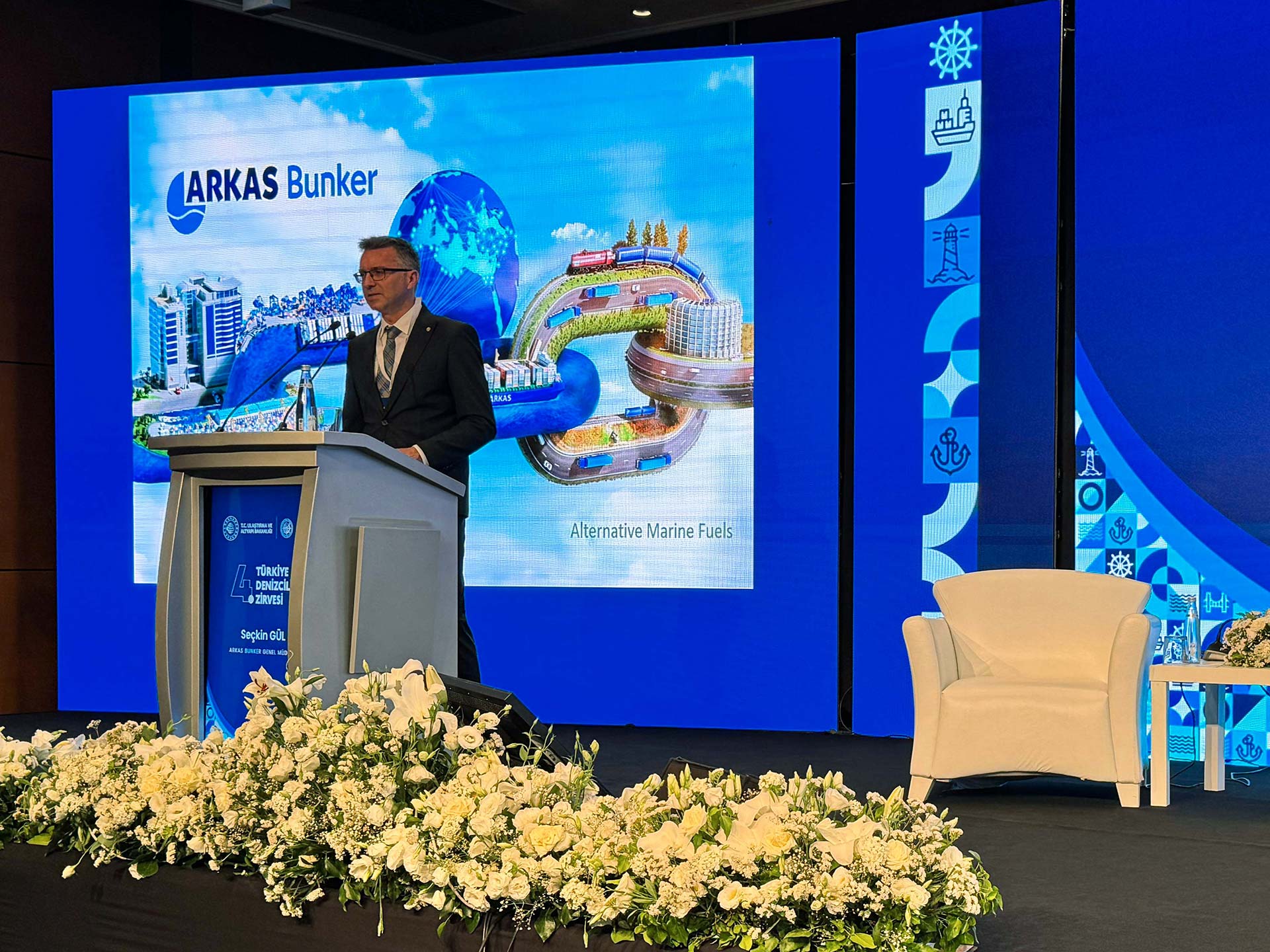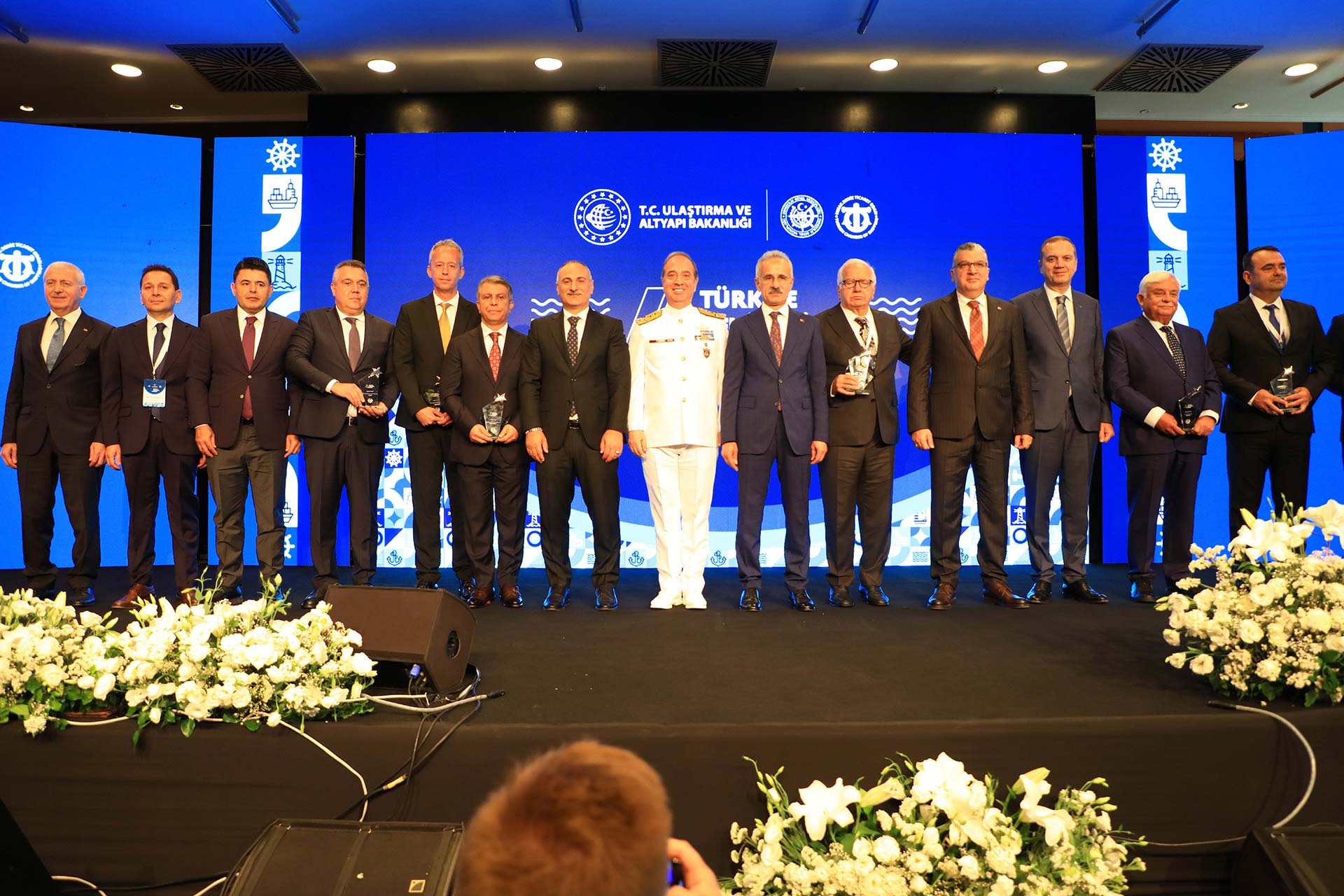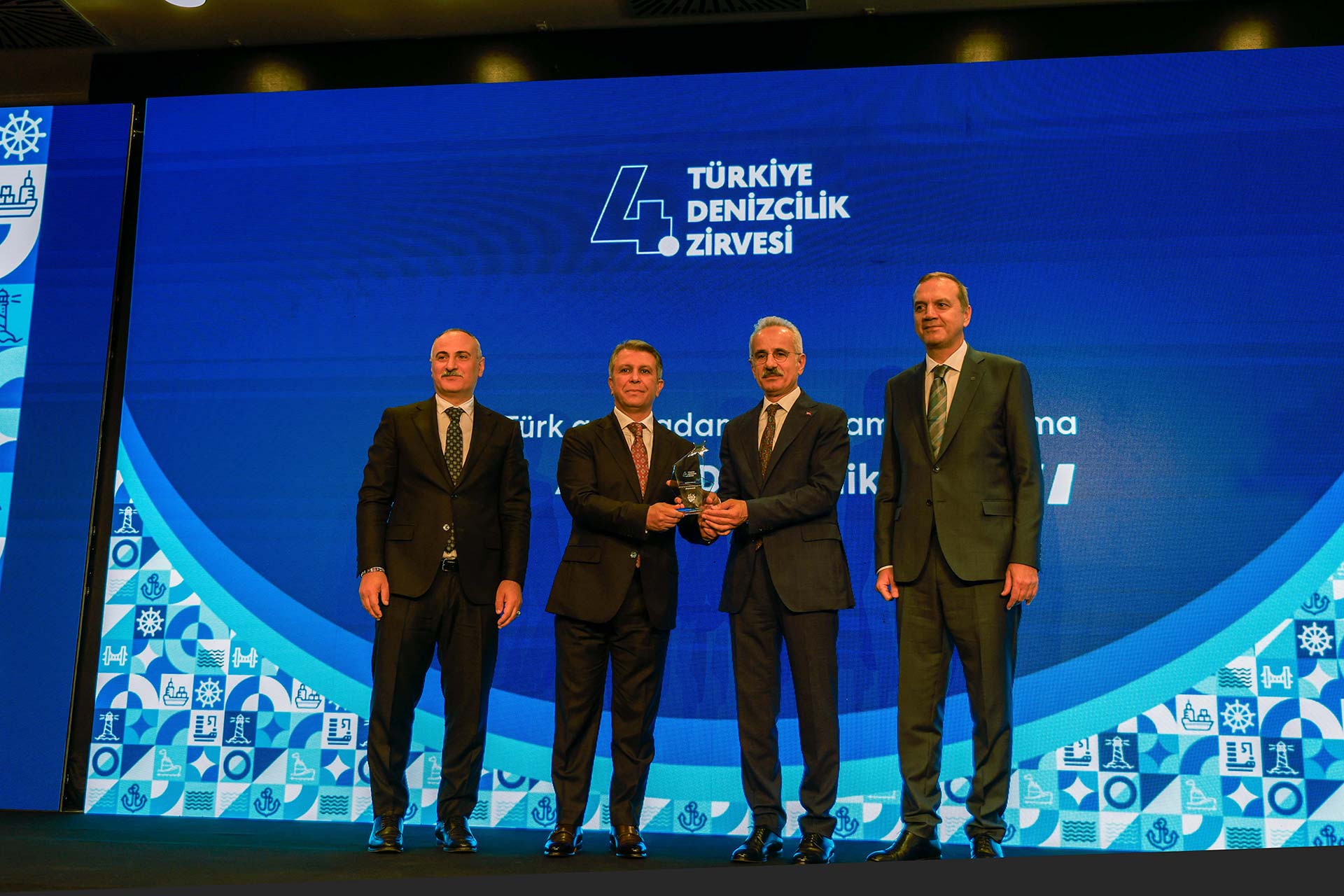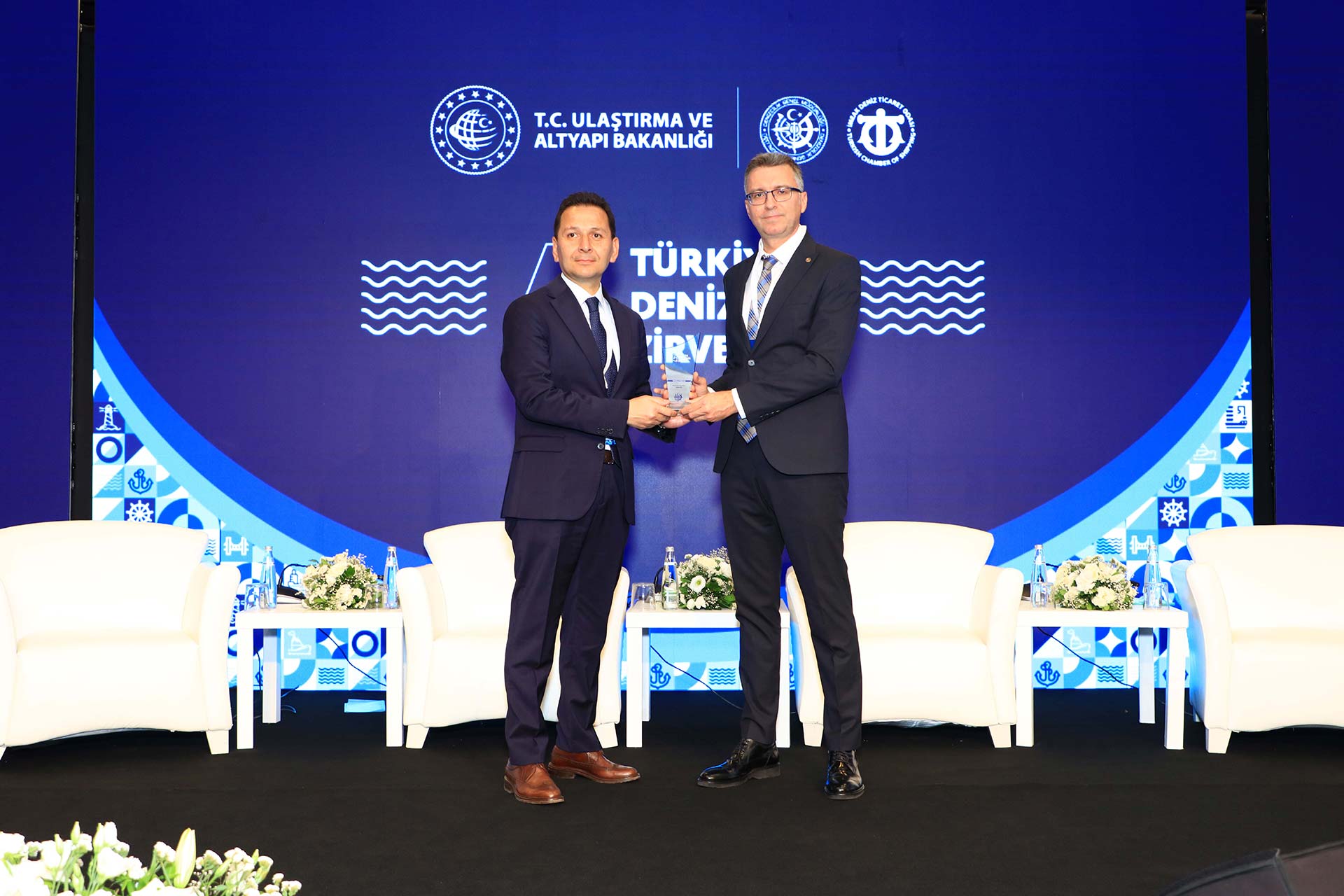At the 4th Türkiye Maritime Summit organized this year, Arkas addressed issues such as environmental transformation, alternative fuels and new regulations, and received the employment award for its contributions to the maritime sector in Türkiye.
The 4th Türkiye Maritime Summit, organized under the theme of “Safe, Secure and Sustainable Maritime in Clean Seas”, was held at Lutfi Kirdar Convention and Exhibition Center in Istanbul under the coordination of the Ministry of Transport and Infrastructure. At the summit, which brought together representatives from different fields of the maritime sector, critical topics such as carbon-free shipping, new financing models and alternative fuels were discussed.
The summit, which was attended by Abdulkadir Uraloglu, Minister of Transport and Infrastructure; Deputy Ministers Durmus Unuvar and Osman Boyraz; Admiral Ercument Tatlioglu, Commander of the Turkish Naval Forces; Vice Admiral Mustafa Kaya, Northern Sea Area Commander; Unal Baylan, Director General of Maritime Affairs; and Mustafa Bankaoglu, Director General of Coastal Safety, brought together pioneering representatives of the maritime sector.
Arkas Receives the Industry’s Top Employment Award
At the award ceremony organized as part of the summit, Arkas Denizcilik received the “Company Employing the Highest Number of Turkish Seafarers” award for its contributions to the Turkish maritime industry. The award was presented to Haluk Iribas, Arkas Maritime Merchant Fleet General Manager, by Minister Uraloglu.
“A New Era for Vessel Management”
Ali Ibrahim Kontaytekin, Board Consultant, drew attention to the transformation process of the industry in his speech titled “Vessel Management within the Scope of IMO and EU Regulations”. Kontaytekin stated that numerous environmental regulations such as the IMO 2020 sulfur regulation, EEXI and CII implementations, EU ETS and FuelEU system have deeply affected the technical and financial structure of the sector. Emphasizing that “tax management” has become an integral element in vessel management in the new era, Kontaytekin also stressed the importance of investing in qualified human resources within the sector. Underlining that the maritime sector is progressing rapidly, Kontaytekin touched upon the necessity to train personnel equipped on carbon emissions in the coming period.
Kontaytekin stated that the global energy production infrastructure needs to be substantially strengthened for alternative fuels to become widespread, adding “This transformation will not be easy, but it is clear that we are on an irreversible path.”
“Alternative Fuel is a Climate Policy”
In his speech titled “Alternative Fuels in the Maritime Industry”, Seckin Gul, General Manager of Arkas Bunker, discussed the potential and limitations of fuels such as methanol, ammonia and hydrogen from both technical and economic perspectives. Commenting on the reasons behind the change towards alternative fuels in the maritime industry, Gul said: “Today, many different alternatives such as LNG, methanol, ammonia, hydrogen and biofuels are being evaluated. Each has its advantages, limitations and technical requirements. Therefore, the industry is facing a transition period that will be shaped not by a single type of fuel, but by multiple solutions, hybrid systems and long-term collaborations. In this process, it is of great importance that all shareholders – from shipbuilding to fuel logistics, from port infrastructures to legislation – make preparations simultaneously.”
Biofuel Use on the Road to Decarbonization
Stating that Arkas Bunker is the first in Türkiye to supply the biofuel “Bio24F”, a renewable and immediately applicable resource on the road to decarbonization, Seckin Gul underlined that this initiative not only ensures the recycling of waste but also helps shipowners achieve their sustainability goals.
Gul pointed out that alternative fuels are the foundation of not only a technical transformation but also an economic, environmental and strategic restructuring. He stated, “The climate crisis has reached an irreversible stage. Consequently, the transition to alternative fuels must be achieved as soon as possible. The fuel of the future is not just an energy source; it is a climate policy,” emphasizing the urgency and importance of this transition.
